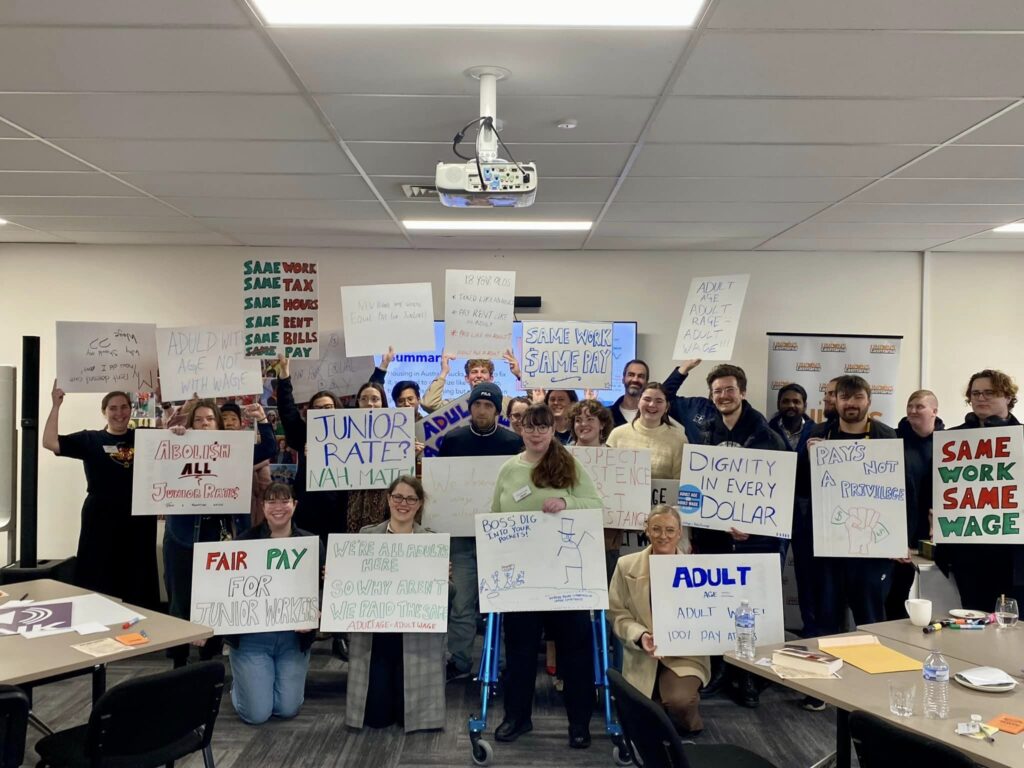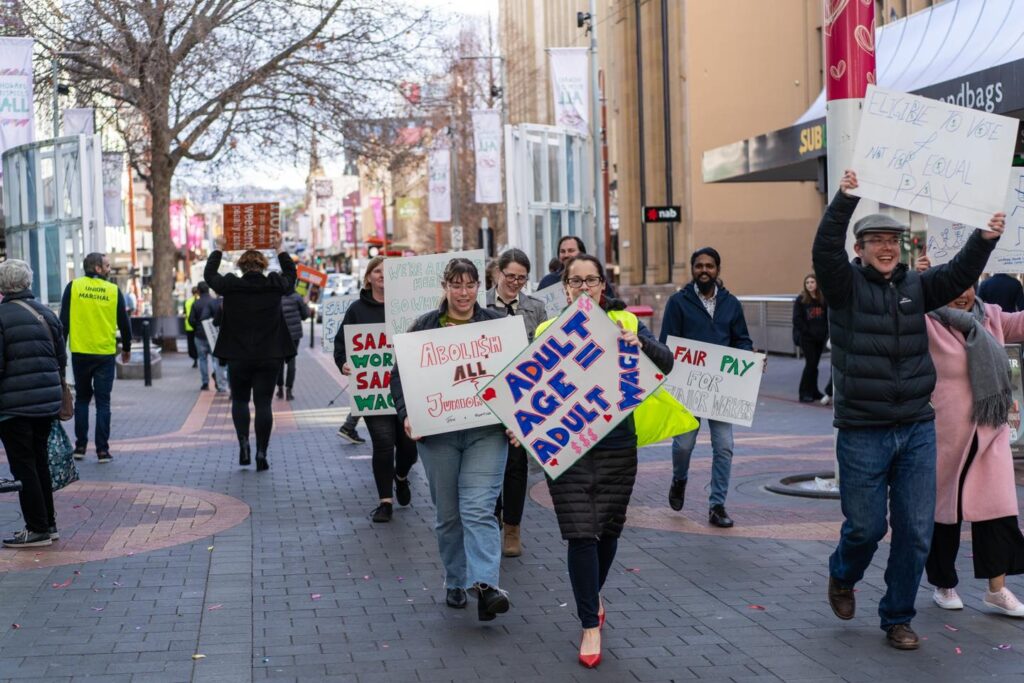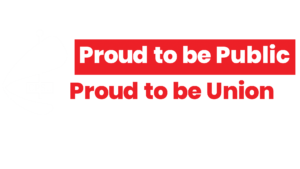
Last week Unions Tasmania and the Young Workers of lutruwita held their first Young Workers Conference. CPSU Industrial Organiser Lilli Midgley attended and reports back.
There was quite a mixed group of young people from around the state, those who’d been in the workforce in a little while, some in stable jobs others in casual positions, plus some year 11 and 12 students who worked in retail or hospitality and were at the start of their working journey.
There was a broad range of topics that were particularly relevant for young people, including housing, where we heard from Jordan van den Lamb aka @purplepingers. Thirza White spoke about our union-won student rights – some of the national wins for teaching and social work students and how we see that play out in the state service.
We went out and took action for the SDA’s Adult Age, Adult Wage campaign. If you’re under the age of 21, you will get paid a percentage of that the adult rate is, even if you’re over the age of 18 and you’re doing the same job as someone who’s 22, you will get paid a percentage of what their earning because you’re young. We wobble boarded at all the scramble crossings as cars went past. As it was in the last week of holidays, students, as well as parents and grandparents stopped and asked questions, so it was quite educational.
In good news for young workers in the State Service: because we aren’t under Awards in the Fair Work system, we don’t have that same junior rate percentage that’s applied to those between the ages of 18-21 in the State Service. In the State Service as soon as you’re 18 and you start working the job, you are paid at the salary they say they will pay you, not a percentage of this.
Artificial Intelligence (AI): We had an Associate Professor from the University of Melbourne, Alysia Blackham, Zoom in and talk to us bout AI bias and discrimination, particularly around recruitment. Statistics suggest that nearly 50 per cent of employers around Australia use some form of AI in their recruitment process – whether it’s using AI to filter out CVs for particular words, those that go on the top of the pile, those that go on the bottom, to AI bots that are used as pre-interview screening to see if you make it to the next round of interviews. That was about where to from here, what level of control we have over AI and the legislation around it. And (weirdly) Tasmania is doing slightly better on this compared to other states.


